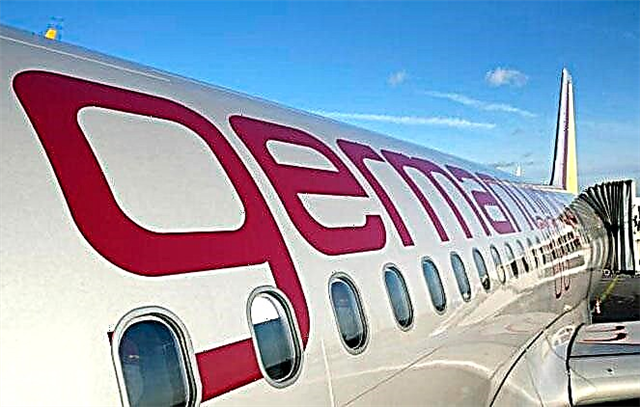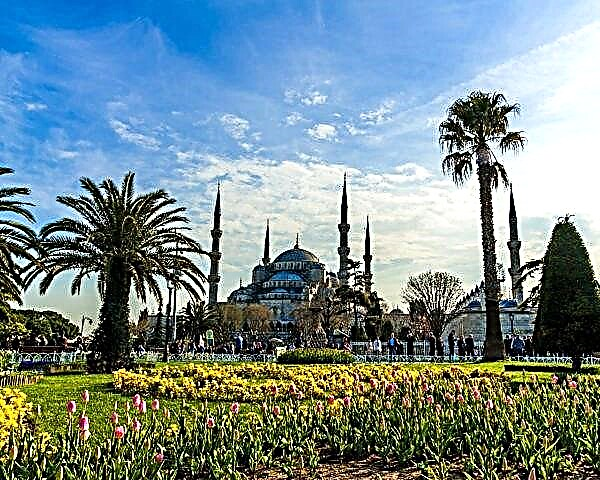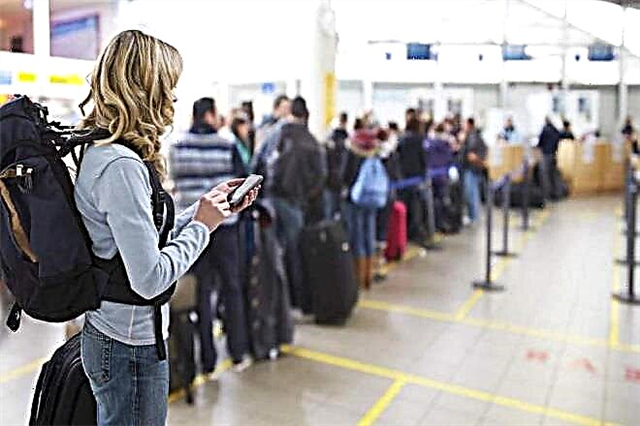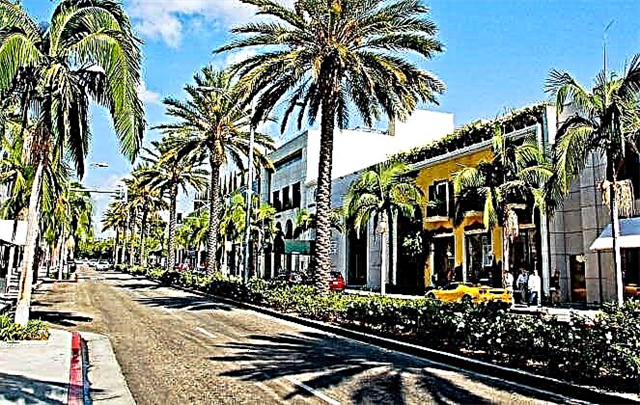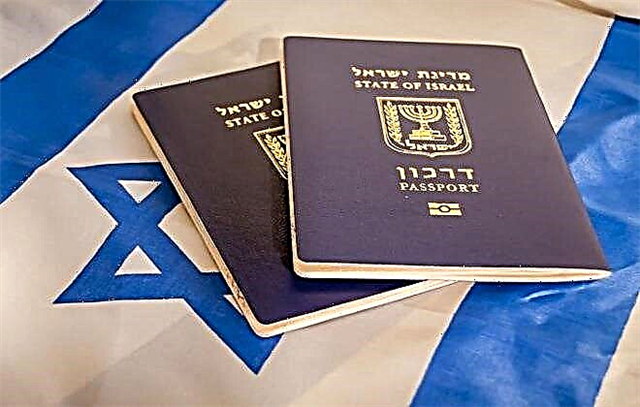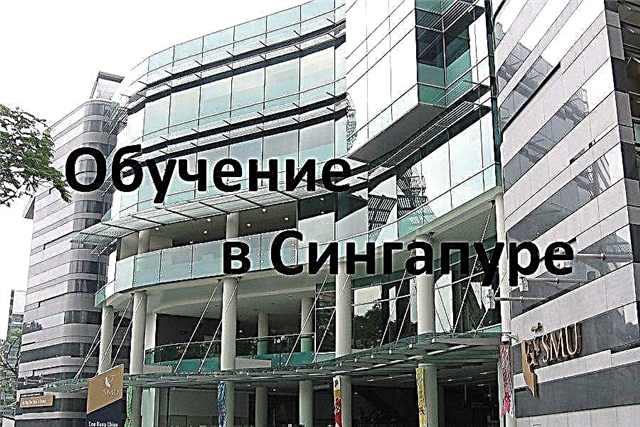The Singapore education system is particularly popular. Its main advantage is the smooth unification of the traditions of the Western and Eastern worlds.
Thanks to the relatively recently introduced British education model, Singapore's higher education institutions are able to compete with the world's most famous universities. Thus, the National University of Singapore occupies 22 place in the rating the most prestigious universities in the world, and Nanyang Technological University - 77th.
The advantage for international students is that the majority of university programs are presented in English due to Singapore's active involvement in the international community. However, there are also courses in Chinese, Tamil and Malay.
Higher education
Singapore education involves students passing 4 compulsory levels:
- Kindergarten for preschool children;
- Elementary School;
- Secondary school;
- Professional education.

Professional education school graduates can get from 17 years old... Before entering, they need to pass exams "O" -stageto prove their level of knowledge and determine which educational institutions they are eligible to enroll in.
The school year in Singapore is divided into 2 semesters:
- Early January - June;
- July - December.
The university academic year depends on the educational program and the university to which the applicant enters.
Education programs
Before entering universities, schoolchildren are required to go through the educational stage in institutions of undergraduate education - junior colleges and central institutes. The network of junior colleges is well developed in the country and involves obtaining professional technical education and preparation for submitting documents to universities.
Education in junior and classical colleges lasts 2-3 years... Some of them (Innova College, National Junior College) are considered quite prestigious as an independent educational stage. Their graduates have prestigious degrees, with which they can no longer enter universities.
You May Also Like

The system of universities in Singapore is distributed as follows:
- Technical University;
- Polytechnic universities;
- National universities;
- Independent universities.
Study Standards:
- Undergraduate - 3-4 years;
- Master - 1-2 years;
- Doctor's degree - 2-5 years old.
Most of the classes are held in the form of discussions and workshops.
Exam points are awarded as follows:
- A1 / A2 - the highest score;
- B3 / B4 - Okay;
- C5 / C6 - satisfactory;
- D7 - satisfactory, minimum for offset.
E8 and F9 are considered unsatisfactory points, insufficient for enrollment in the subject.
Conditions for admission
First of all, a foreign applicant of Singapore universities must be fluent in English at the level Upper-Intermediate... The main disadvantage is that there are no Russian courses in the country.
Applications are submitted no later than 2 months before January (beginning of the school year).
Graduates 9-11 grades can only apply for undergraduate education in small and classical colleges. Universities are open only to Russian middle and senior students and recent graduates.
You May Also Like
List of required documents
All applications for training are registered in the program SOLAR (Student`s Pass On-Line Application & Registration)... Required data:
- Full name of the applicant;
- Day, month and year of birth;
- Floor;
- Nationality;
- Desired terms of study.
After filing an application in SOLAR access to filling opens form 16 with the following data:
- Passport data of the applicant;
- Parents' documents in case they are not citizens of Singapore, but study, live or work there;
- University address;
- Photo of the applicant.
All documents must be translated into English.

Study visa
All international students in Singapore are required to hold a student visa. It can be issued by contacting the embassy of the Republic in your country.
The main requirements for violation of which a visa can be withdrawn:
- Training must be at least 15 hours a week;
- The student must attend more than 90% of class hours.
Average duration of processing visa documents - 4 weeks.
Cost of education
Singapore education is considered relatively cheap compared to curricula in other countries, but only for its citizens. Foreigners have to pay much more.
The approximate cost of the courses:
- Undergraduate - 10.5-31.5 thousand dollars per year;
- Master - 15.5-42.5 thousand dollars a year.
In addition, international students have to pay related fees and costs:
- Application to the immigration office for arrival in the country;
- Medical insurance;
- Student and administrative fees.
Tuition fees vary depending on the institution and the course chosen.

Is it possible to get education for free
The Singapore Ministry of Education funds universities such as:
- Singapore Institute of Technology;
- Nanyang Technological University;
- Nanyang Polytech.
Scholarship programs regularly appear on their official websites, which provide free places for the study of foreign students.
Scholarships and grants for foreigners
Scholarship programs in Singapore are provided by the following organizations:
- Ministry of Education;
- Specific universities in Singapore;
- International organizations (EU, NATO, UN, etc..).
On the official Internet resources of these organizations, you can familiarize yourself with the terms of free education or its partial payment for foreigners.

Who can become a participant of the grant program:
- Senior student or recent university graduate;
- A person with a fairly high level of English.
The scholarship candidate is obliged to:
- Show good academic performance;
- To actively participate in the social and public life of your university / city / country / other country;
- Show good results in scientific and research activities.
A student from Russia needs to possess all these qualities for the successful passage of the competitive stage, since the advantage in the distribution of scholarship grants is given to applicants from eastern states:
- Thailand;
- Cambodia;
- Indonesia;
- Myanmar;
- Philippines;
- Vietnam;
- Laos;
- Brunei.
On average, about 1 scholarship place applies for about 12 people.
Features for internship and study exchange programs
Singapore offers internship and study exchange opportunities to foreigners. Most often, future employees of international companies with branches in Singapore become interns. To get a job under such a program, you need to find the official website or office of such a company and inquire about possible options in the administrative department.
Accommodation options for students
Most of the higher educational institutions are not equipped with campuses and dormitories for students - only the largest universities have such advantages:
- National University of Singapore;
- Nanyang Technological University;
- Nanyang Polytechnic).
The average monthly payment for a room in a student dormitory is about $ 500. The average rent for an apartment for a Russian for the same period is 1000-1200 dollars.

Accommodation is also possible free of charge if the student wins the grant program. The money received during the competition almost completely covers the costs of education and housing in the state.
Top universities in the country
Below is information about the prestigious higher education institutions in Singapore.
| University name | original name | Official site | Short description |
| National University of Singapore | The National University of Singapore | nus.edu.sg | Largest and oldest university in Singapore. Offers a variety of programs for study: technical, mathematical, philological, social, natural sciences, art history. |
| Nanyang Technological University | Nanyang Technological University | ntu.edu.sg/Pages/home.aspx | Consists of 4 colleges and 12 schools that teach technology sciences, economics and finance, natural sciences, humanities, art history, social and information. |
| Nanyang Polytechnic | Nanyang Polytechnic | nyp.edu.sg | Includes schools and courses in business, chemistry, physics and biology, courses for engineers, information technology, design. |
| Temasek Polytechnic | Temasek Polytechnic | tp.edu.sg | Consists of schools of computer science and IT-sciences, business, information, design and social sciences, courses for engineers. |
| Ngi Ann Polytechnic | Ngee Ann Polytechnic | np.edu.sg/Pages/default.aspx | It is open to applicants for the specialties of business, design, production and filmmaking, natural and social sciences, information technology, chemistry and physics. |
Diverse reviews of studies
Alyona:The teaching methodology at Temasek Polytechnic does not resemble the education system in the home country. Each lesson is more like a discussion, a discussion of a topic by all students in the classroom, allowing them to come to their own conclusions. There are good laboratories, a lot of teaching materials and inventory - all this is interesting, forcing you to learn. The main problem in this case is the lack of time for a part-time job.
Ivan:The peculiarity of the Singapore teaching technology is in the reinforcement of theoretical knowledge with applied knowledge. We often visit laboratories. But we practice not only in them, but also directly in production. To study well, you need to study here constantly. On the one hand, it develops specialization skills well. On the other hand, students have practically no free time.
Daria:English in Singapore will be difficult for beginners to understand - the pronunciation differs from British and American. But for those who know it sufficiently, it will be easy - English is considered the state language, so it is spoken almost everywhere.
Despite the relatively high cost of courses for foreigners, Singapore is still considered a cheaper option for studying in comparison with well-known world universities. At the same time, the quality of education in the country is at a competitive level.


